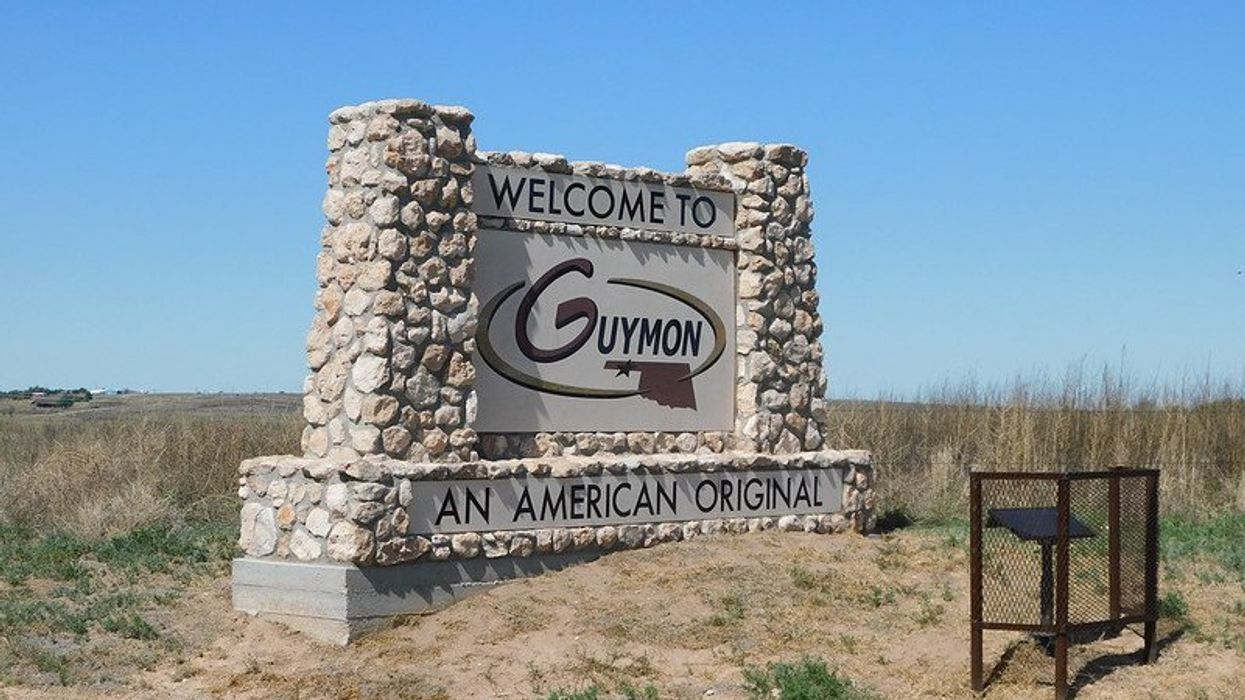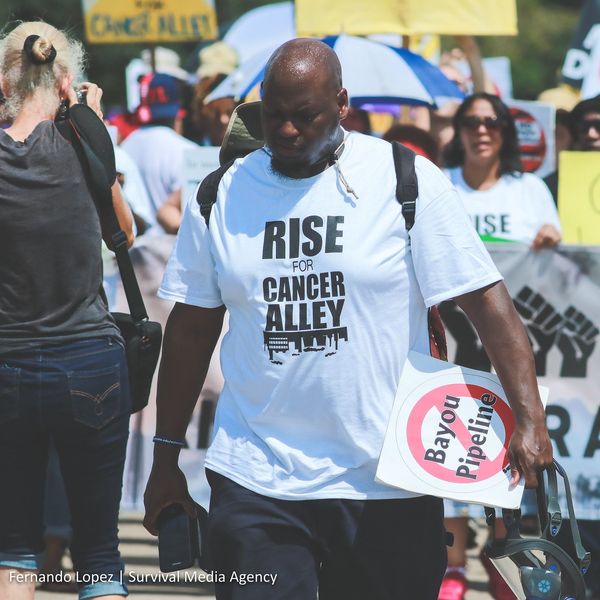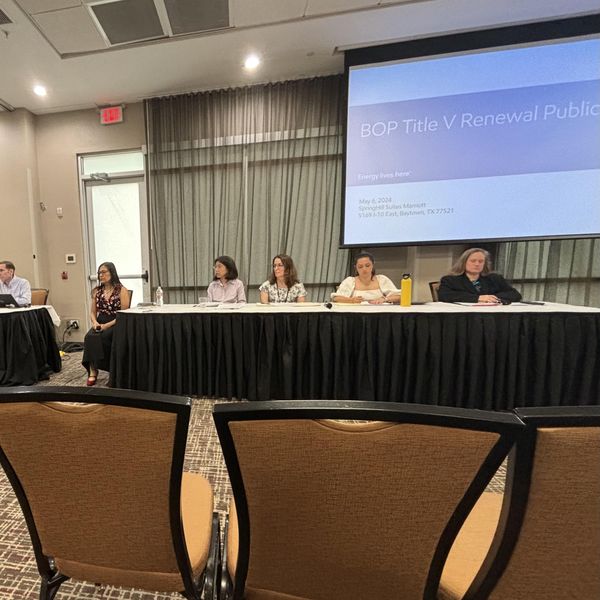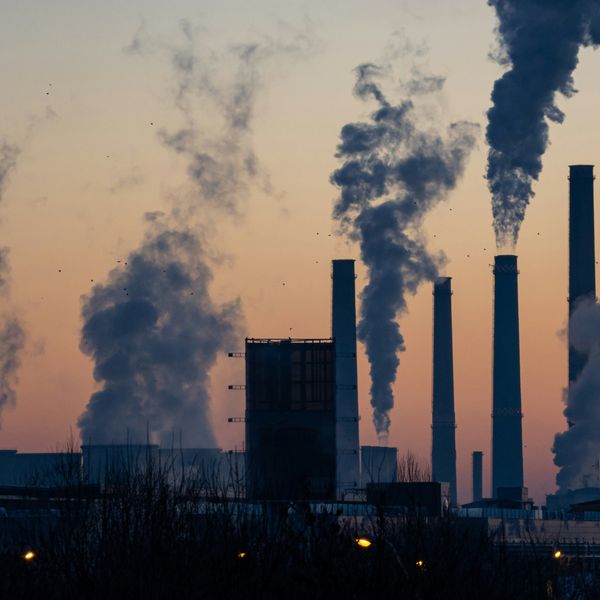Editor's note: This is part one of a two-part series on a recent bribery trial over a toxic Superfund site in Birmingham, Alabama. Read part two here.
BIRMINGHAM, Ala. -- It wasn't easy for Friendship Baptist Church of Collegeville to leave its longtime home.
The congregation had been in the Collegeville neighborhood, on the city's north side, for more than 100 years, pastor Lorenza Huggins said. It had been in its building on 30th Place North since 1961.
But in 2012, members learned the church and grounds had been sprinkled with heavy metals and cancer-causing compounds. The neighborhood was surrounded by mills and furnaces of the steel industry that forged Birmingham, once known as the "Pittsburgh of the South." Soot from smokestacks begrimed local homes for decades.
Much of the congregation had already moved out of the neighborhood, said Huggins, who has led the church since 1999. The pollution discovery was the last straw.
"They did not want to travel into a contaminated area to come to a contaminated building to worship," he told EHN.
The church now holds its services in a nearby suburb. A fading vinyl sign outside the old building declares the church moved "because of the deadly pollutants that have contaminated our building and our grounds."

The streets of North Birmingham are lined with small, mostly wood-frame houses, often separated by empty blocks where steelworking businesses used to stand. Many of the homes are sandwiched between a pair of coke plants that turn coal into the carbon-rich fuel that runs the city's remaining mills. African-Americans settled here in the era of segregation and discriminatory mortgage practices known as "redlining," when they were locked out of other neighborhoods.
Nearly a century later, those communities remain among the poorer pockets of one of the poorest states, struggling with poverty rates up to 65 percent — more than double that of Birmingham.
Today, much of the area lies within a 1,000-plus-acre Superfund site, where Environmental Protection Agency crews are scraping away layers of soil laced with arsenic, lead, and benzo(a)pyrene, a coal byproduct that causes cancer. The EPA has identified five "potentially responsible parties" for that pollution, including the coke plants.
And the fallout from those smokestacks now reaches beyond the residue in the yards – it's rubbed off onto Alabama's already scandal-tainted politics via a federal bribery trial this summer that dug up some figurative dirt to accompany the real stuff.
- It's led to prison terms for a state representative, a partner in a heavyweight law firm and the top lobbyist for Drummond Coal, which owns one of the coke plants.
- It's gotten the head of the local NAACP chapter bounced out of his job, at least temporarily, after his name came up during the trial.
- And it's now led to the resignation of the EPA's Southeast regional administrator, Trey Glenn, after he and his old business partner were indicted on state ethics charges last week. Glenn has denied any wrongdoing.

"They need to be jailed, and jail ain't good enough for them," Charlie Powell, who grew up in the area and now leads a group called People Against Neighborhood Industrial Contamination (PANIC), told EHN. "They got paid, and we're still dying."
North Birmingham has long been a hotbed of environmental injustice. Residents easily name multiple friends, family members and neighbors who fell ill or died before their time—and many point to ubiquitous pollution as a likely culprit. But many are hoping this trial is a new chapter. Alabama environmentalists, activists and longtime residents are now tugging on the loose ends left behind by the case, hoping to force changes in the way the state regulates polluters -- or doesn't.
But the trial illustrated just how difficult that will be.
"You learn that corporate power extends into government institutions, and it doesn't matter what the consequences are for citizens," David Ludder, a lawyer who represents a coalition of conservation groups, told EHN. "Politicians will do what the corporate power brokers want done."
"They didn't care"
Birmingham sprang to life as a post-Civil War boomtown, since the three main ingredients for making steel -- iron ore, limestone and coal -- were found nearby. The mills were fueled by coke, produced when coal is superheated in an oxygen-free furnace to reduce it down to nearly pure carbon. What's cooked off includes tar, sulfur dioxide, nitrogen oxides, cancer-causing substances like benzene and arsenic and heavy metals like lead.
Today, two coke plants still operate on the northside: ERP Compliant Coke, formerly owned by coal producer Jim Walter; and Drummond Coal's ABC Coke. Both have been running for nearly a century. In the 1950s, the smell of smoke and tar hung heavily over the neighborhood, said Vivian Starks, a retired schoolteacher who's now president of the Collegeville Neighborhood Association.
"It was worse than what it is now," Starks told EHN. "When we'd hang out clothes, sometimes you'd have to take them in and rinse them again."
Related: Visit our Justice page for the day's top stories on the intersection of climate change, the environment and social justice
Today, many of the byproducts of the coke ovens are captured, re-used or sold for industrial use. What's emitted today is far less than what the plants put out in the 1980s. But each plant still emits tens of thousands of pounds of toxic chemicals a year, according to EPA data.
In 2017, the federal Agency for Toxic Substances and Disease Registry found lead, arsenic, and benzo[a]pyrene in the neighborhoods near the coke plants at levels that posed elevated risks to human health—especially for children. People in the surrounding neighborhoods can rattle off the names of neighbors or relatives who've gotten sick or died over the years, and they suspect there's a connection.
Starks said people were getting sick when she was a child, "But being in a black neighborhood, they didn't care."
"I had an aunt that they never found out what was wrong with her," said Starks, now 78. "She lived on the street behind us. And most of the kids I grew up with had asthma, or whooping cough or whatever."

Hay covers the ground left behind after an EPA cleanup crew stripped contaminated soil off the top of this North Birmingham yard. (Credit: Matt Smith)
Huggins, who grew up in a North Birmingham housing project, lost a sister-in-law to breast cancer and his mother to uterine cancer. His wife's other sister survived breast cancer. So did his niece.
"You can't be sure, because people have cancer all over the country," said Huggins, 61. "But I believe that the contamination contributed to some of the illnesses that people had in the area."
The county health department has said there's no evidence people in North Birmingham are sicker than people in other neighborhoods. It came to that conclusion by comparing death certificates in the North Birmingham ZIP code, which is overwhelmingly African-American, with those for black people in the rest of Jefferson County over a 10-year period. The 2014 study found "no significant difference" in deaths from cancer, respiratory problems like asthma or birth defects.
But Michael Hansen, the executive director of the Birmingham environmental group GASP, called the study inadequate. It didn't look into rates of non-fatal illnesses, emergency room visits or hospitalizations, or take into account disparities in access to health care.
"That's just not how epidemiology works, and they know better," Hansen told EHN.

Drummond Coal's ABC Coke plant is at the heart of a bribery scandal that has led to prison terms for three people and ethics charges against two more. (Credit: Matt Smith)
The EPA started to get involved in 2009 by testing air quality around some of the local schools. By 2013, it had declared the area a Superfund site and named five companies, including the coke plants, as potentially responsible for the pollution.
Then in 2014, GASP asked the EPA to extend that cleanup into two more communities: Inglenook, which is part of Birmingham, and the small suburb of Tarrant, which is home to Drummond's ABC Coke plant.
Later that year, the EPA proposed adding the existing Superfund site to its National Priorities List, which would allow it to move ahead with cleanup and seek reimbursement from the responsible parties.
Faced with the prospect of tens of millions of dollars in cleanup costs, Drummond got to work fighting those measures -- a campaign that would land its top lobbyist and its attorney behind bars.
Read part two: From coal lobbyists to community leaders—the plot to keep Birmingham polluted

























